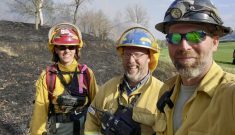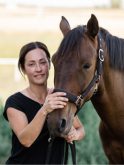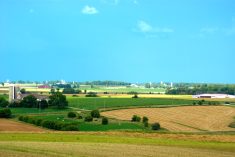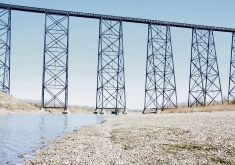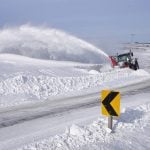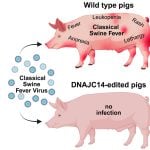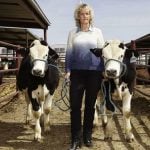Nancy Charlton is a veterinarian who works across North America for dairy company DeLaval. Pre-COVID-19, she was on a flight three out of four weeks in every month. She shares how her world has changed.
March 10 was a day like many before, but it was also the day that everything changed. I was at my home office in Ontario for the first part of the week, looking forward to presenting an on-farm session at a new robotic milking barn owned by a Ridgetown College alumnus.
Read Also

Canada to have increased presence at Agritechnica 2025
Interest in diversifying trade markets is taking more Canadian manufacturers to Agritechnica 2025, the world’s largest machinery show.
The audience was second-year dairy students and I would head to the airport for a late evening flight to St. John’s, Newfoundland, where my partner lives.
I was to be in Newfoundland working from home for the rest of the week before flying to Montreal five days later to support a Robotic Operators Course in French for farmers who used our new robot, the V300.
This was a common week for me. I would be on a flight three weeks out of four as Farm Management Solutions Manager for DeLaval across North America.
My weeks involved teaching courses on robotic farming for farmers and advisors along with training on herd management tools and sensors for both conventional and robotic equipment. My role saw me in the United States 50 per cent of the time.
I walked out of the St. John’s airport at 1 a.m. March 11; and have worked at my computer ever since.
On March 11, I received notification the Robotic Operators Course could be cancelled, and I thought “How crazy was that?” But the changes were only starting.
I continued my home office work, connecting with colleagues to ensure the course material was aligning with the English material. The TV was on and I was now watching CBC for updates. The World Health Organization was announcing a pandemic; the federal government was increasing the level of concern. When the prime minister told Canadians to come home and (chief public health officer Theresa) Dr. Tam told Canadians to stay home, I started to accept that maybe DeLaval was not out of line. I read about Italy and I started to understand. Here I was sitting at the kitchen window looking out and up at Signal Hill, still covered in snow (remember this town had already had a shut down due to Snowmagedden in January).
I had city internet, a house located where I could walk to wherever I needed to go and enough wood until warm weather came. Then maybe I would head back to Ontario in a month.
The month came and went and my days at the computer, over Skype, on the phone continued. The work ramped up and I began to wonder, how did I travel and keep up in the past, and when would I return to Ontario?
With COVID-19, everyone was at home and projects could continue because of technology. When people are on the road travelling, it is hard to meet over Skype and what would be a meeting once every two weeks or once a month, turned quickly into weekly meetings and sub committees were formed and project input was ramped up.
Then there was the question of how to continue training. Students were soon only learning online and it was the corporate world’s turn to figure it out. In the meantime, dairy farmers never slowed down (although processing and providing product for home consumption exposed challenges), so we dug in and kept supporting them.
We increased the level of remote support, using technology to support technology. With programs like LogMeIn and Team Viewer, remote support has always been a part of what I have done. However, we love to see farmers and I did push back in the early days. I wanted to travel to farms and see the farmers and work with them.
When you have no choice about travel, you turn to what you have already been doing but you ramp it up, and yes, it can work. Thankfully the internet in St. John’s is much better than on the back roads of the township of Wellington North, where my other home is in Ontario.
Remote on-farm meetings, webinars, GoToMeetings and Skype meetings have filled a significant portion of my days. Working globally, you can talk to European colleagues first thing in the morning and if needed, colleagues in Asia in the evening to line up with their early morning. The internet will provide challenges, and it is a matter of learning how to manage them.
COVID-19 time allowed me to connect with more industry allies, and spend more time working with my colleagues. It has been easier to support my team as we can connect on the first or second try. I manage a team across North America and I am proud of how hard they have worked and how seamlessly they buckled down at the computer and kept on supporting their dealers and the farmers.
We’ve responded well to COVID-19’s challenges. We took what we were already doing and expanded it when the travel was shutdown. We continued to fulfil our role of supporting our customers, both dealers and dairy farmers. When you are constantly learning about new tools, new ways to carry out your role with your company, then when life throws something unexpected you are much more capable of responding.
Never stop learning; never stop looking for new and different tools to deliver your message, your support or your product. When the world turns upside down, you will be one of the first to respond and drive on.



